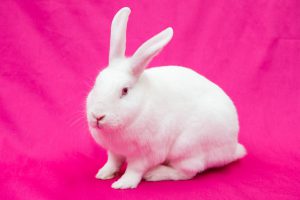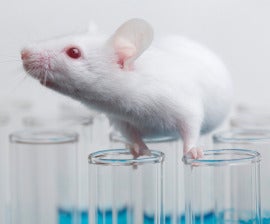(RICHMOND, Virginia) —The Humane Society of the United States, Humane Society International, Center for Biological Diversity, and Born Free USA sued the U.S. Fish and Wildlife Service today for violating the law by failing to post online elephant and lion trophy permitting records as required by the Freedom of Information Act.
Under 1996 amendments to the Freedom of Information Act, agencies are obligated to post their decisions — including orders, policies and interpretations — online for public inspection. The same obligation applies to certain types of records that are frequently requested and that have been released in the past. FWS’ FOIA log demonstrates that conservationists, journalists, and others request elephant and lion trophy import records often enough that this information should be posted online automatically as soon as the agency receives it.
Despite immense public interest in the government’s decision of whether to allow the import of hunting trophies from imperiled species, and despite repeated attempts by conservation organizations to shed light on this important conservation issue, the Fish and Wildlife Service is covertly conducting this Endangered Species Act permitting program.
“Although it is unlawful for an American to import an elephant or lion trophy without first obtaining a permit, the public has been systemically deprived of contributing relevant scientific information to influence the federal government’s implementation of these critical elephant and lion conservation measures,” said Anna Frostic, managing wildlife attorney with the Humane Society of the United States. “FWS is openly flouting its statutory mandate to proactively post frequently requested material online.”
Today’s lawsuit asks a federal district court in Virginia to order the Fish and Wildlife Service to routinely post elephant and lion trophy permit applications, the agency’s permitting decisions, and related findings regarding the sustainability of hunting species threatened with extinction.
“The Fish and Wildlife Service needs to come clean and let the public know how many elephants and lions are killed to decorate rich Americans’ living rooms,” said Tanya Sanerib, the legal director of the Center for Biological Diversity’s international program. “With huge threats facing Africa’s imperiled wildlife, the unlawful secrecy about these bloody imports is totally unacceptable.”
For most of the past decade, according to tallies from the CITES trade database, U.S. trophy hunters killed and imported the parts of approximately 500 African lions and 500 African elephants each year. Both species are now listed as threatened with extinction under the Endangered Species Act.
Since Ryan Zinke became Interior Secretary, FWS has approved elephant and lion trophy imports from countries such as Zimbabwe, Zambia, Namibia and South Africa to the delight of trophy hunters. President Trump, meanwhile, has blasted trophy hunting as a “horror show.”
According to Angela Grimes, Born Free USA Acting CEO, “We have seen an alarming increase of attacks on the Endangered Species Act and the imperiled species it protects from both Congress and this Administration. By conducting this permitting program under the veil of secrecy, the FWS is further attempting to weaken and degrade the effectiveness of the ESA. To fully understand the impacts to threatened African lions and elephants, this information must be accessible to the public. Only then can we effectively protect these animals and the integrity of the ESA.”
Today’s lawsuit follows a pending court case filed by the same plaintiffs contesting the merits of the administration’s decision last November to lift an import ban on Zimbabwe elephant trophy imports and to allow imports of lion trophies from Zimbabwe to the U.S., and its March 1 decision to shift to a “case-by-case” process for making trophy import findings.
Plaintiffs are represented in the case on a pro bono basis by Paul Hastings LLP.
Background information:
- African elephants and African lions are listed as threatened in the U.S. Endangered Species Act. A hunter must submit an application to the U.S. Fish and Wildlife Service if they wish to import an elephant or lion hunting trophy, demonstrating that the import enhances the survival of the species. The Service makes a “positive” or “negative” enhancement finding on the trophy hunting of the species in the country of origin.
- The United States is the world’s largest importer of elephant and lion hunting trophies, according to trade data from the Convention on International Trade of Endangered Species.
- Wildlife biologists have warned that trophy hunting of elephants and lions contributes to their population decline.
- As few as 20,000 wild lions remain in Africa. There has been an alarming decimation of African elephant populations with a loss of approximately 111,000 animals from 2006 to 2015 due to poaching for their tusks. Trophy hunting adds another layer of cruelty and threat to their survival.
Media Contacts:
HSUS: Rodi Rosensweig, 203-270-8929, RRosensweig@humanesociety.org
HSI: Alison Shapiro, 301-721-6472, ashapiro@humanesociety.org
Center for Biological Diversity: Tanya Sanerib, 206-379-7363, tsanerib@biologicaldiversity.org
Born Free USA: Garrett Johnson, 202-368-6833, garrett@bornfreeusa.org









